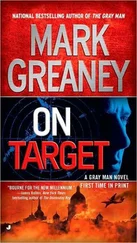But now it looked like he’d overestimated her concern for her financial problems, or else he’d underestimated her dedication to her organization.
And this led him to a new problem. He needed her no vote, but more than that, he needed her discretion. If she revealed the scheme to bribe UN officials, Riley himself would be the one facing the threat of a scandal.
He sipped his Tsingtao beer, taking a minute to regroup. Then he spoke, sticking with his Kincaid legend, the NYPD detective. With a Brooklyn accent he said, “Look, Marleni, you came here tonight on foot, you wanted to meet me in this out-of-the-way hole-in-the-wall. You’re dressed like you’re in a frickin’ Sam Spade novel, for cryin’ out loud. You don’t look to me like a woman who doesn’t want to go along with the plan. Just tell me what it is you want and I’ll do my best to make it happen.”
Allende shook her head. “Nothing. I want nothing. I came like this because I am ashamed to be meeting with you again. If someone I know sees me . . . I want the money, of course, but I am no criminal. I have a duty to my organization. I cannot do this. I will not.”
Riley gave her a challenging look. “How are you going to feel when the vote fails anyway because many of your colleagues don’t share your bright and shining sense of mission? You are going to be the only one who doesn’t benefit.”
“I know you have approached others. I can see it on their faces around the office. They all want to know if others in the committee know about their secret. I am sure they hope everyone knows, so everyone will go along quietly.”
Riley raised an eyebrow, but Marleni Allende lifted a hand quickly; on her face she had an expression of worry.
“I will go quietly, don’t doubt this. I will not say a word about anything that has happened. It is not my place to hurt my friends and coworkers. But I will not join in this . . . corruption.”
She stood. “I am sorry, Mr. Kincaid. Good night.”
Without another word she turned and headed for the door.
—
Allende was still in the restaurant when Driscoll noticed the new arrival to the neighborhood. A small black SUV with its lights off pulled up to the curb some twenty-five yards north of his position on the corner of Bayard and Mott. He could just see one person behind the wheel, but he wasn’t sure with all the reflecting neon from the Chinese character signs running up and down both sides of the street.
Marleni Allende—Sam had confirmed her identity when he got a perfect shot of her face during her meeting with Riley—stepped out of the dim sum place and began walking up Mott Street, in the direction of the black SUV.
Sam had not seen anything passed between Riley and the UN woman, and now, watching the way she had spun away and marched off, he read it as a show of resolution. He got the distinct impression she was turning her back on Riley, figuratively as well as literally.
Sam said, “Listen up. The woman is not going to play ball with Riley, and she is on the move, heading northbound on foot. A suspicious vehicle just pulled up on the corner.”
Ding called back. “I’m en route from the south.”
Dom said, “I’m in position if she comes all the way to Canal Street.”
Sam just sat in his dark car. As much as he wanted to tail the woman leaving on foot immediately, he wouldn’t reveal himself by firing up his engine right now. Instead, he sat and watched while she crossed the street. While she did so the SUV started to move forward, directly facing her. But a passing Audi sedan honked its horn and swerved to avoid a collision with the SUV, then it turned right onto Mott.
The black SUV, all its lights still off, stopped and let the passing traffic by.
Sam said, “Be advised, we might have aggressors. This SUV is thinking about either following her or running her over. Can’t tell which yet.”
Dom said, “You’ve got to be kidding. In Manhattan?”
Sam said, “I just call ’em like I see ’em. Wait one—”
The SUV pulled into traffic behind the Audi and went straight on Bayard, passing behind the Chilean UN official, who was now back on the sidewalk and heading north toward Dom on the corner of Canal and Mott. The vehicle turned on its lights as it took off up the street.
Quickly Sam looked back toward the dim sum restaurant. Edward Riley was leaving through the front door, heading off to the south, in the opposite direction of the activity. He was talking on his phone, but he did not seem overly excited or concerned.
Sam said, “The SUV has moved on, but they might be handing off the tail to another team, or else they’re trying to get ahead of her. Can’t explain it, but I have a feeling they aren’t bugging out.”
Ding Chavez said, “Then we go on your intuition. I’ll stay parallel of you to the west, you stay in traffic, get up to Canal, and Dom will take the eye in the foot-follow when the target passes.”
Everyone agreed, and the three men all began the orchestrated ballet that is a coordinated mobile surveillance operation.
—
Ding was in condition yellow as he moved, his eyes open for any countersurveillance. But he had no way of seeing the seventy-year-old Korean woman sitting back from the window in the second-floor apartment over a bodega, the dirty curtains parted just enough for the lens of a video camera. She took twelve seconds of video as Ding passed below her.
A minute later she had sent the video to her local contact, an RGB officer. In a subsequent phone call she told the man that the Hispanic-looking fellow in the video was, unquestionably, near the British man she had been ordered to watch over tonight.
She was just a watcher. There were other RGB men here in the area, and they had used her for intelligence about the activities in the dim sum restaurant, but she had never seen her contact face-to-face, nor did she know a thing about the mission.
She had been working on this job for the past several days. Once each day she would get a call from her contact, and she would go to the address listed, either a restaurant or a laundromat or a food court or a parking lot or, in this evening’s case, an empty and unlocked but obviously lived-in apartment on Mott Street in Chinatown.
She would then keep an eye out for anything out of the ordinary around her. By her second day she recognized the one constant to each scene was the white man with the dark hair. She was not told his name, but when she pointed him out she was directed to keep watch for anyone else interested in him.
And now that she’d been at this for five days, she finally had success.
The Hispanic man she had identified tonight had not done anything wrong. He had not gotten too close to his subject, nor had he acted in any way different from any other random passerby on the street—any of the three times she had seen him.
That was what compromised him. The old lady had a memory like a trap. Three mornings earlier on 3rd Avenue the short, dark-haired man in his forties had been walking with another man, deep in conversation and with a cup of coffee in his hands. They were across the street and some seventy-five yards from where Edward Riley was having coffee with a contact at a Starbucks. The Korean lady had been stationed in a Hallmark shop, looking out the window and simply noting passersby.
Two days later, in the mid-afternoon, a construction worker in denim pants and a T-shirt sat on a residential stoop in Chelsea, a block and a half from where Riley and one of his agents had gone into a brownstone.
The Korean woman had been browsing in a luggage store on the corner, she’d been far from the construction worker, but she thought he might have been the suited Hispanic from two days earlier. If she’d had binoculars she could have made the connection with certainty, but her cover was more important to her than his cover, so she let it go.
Читать дальше












